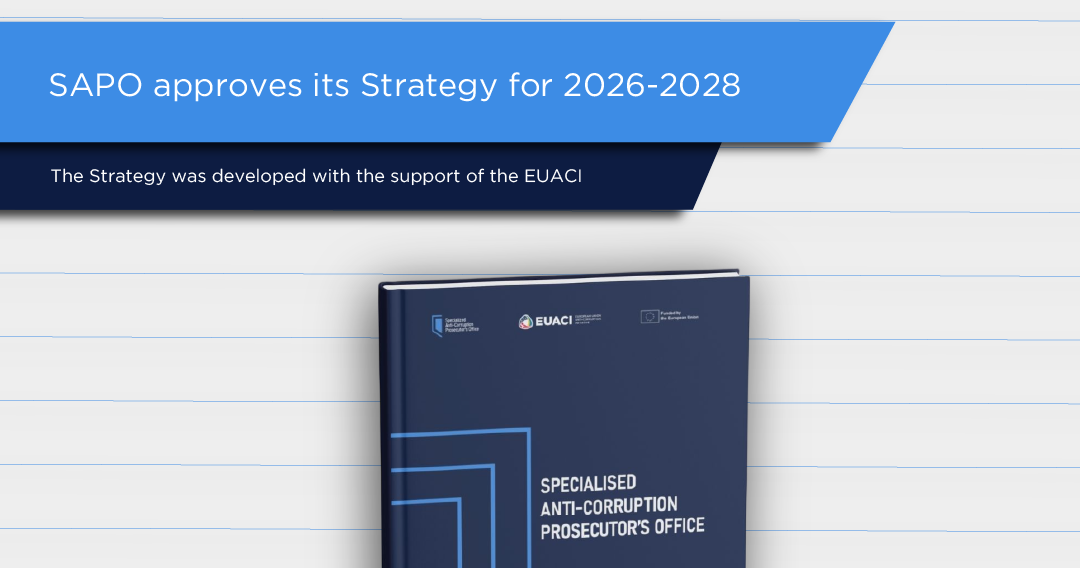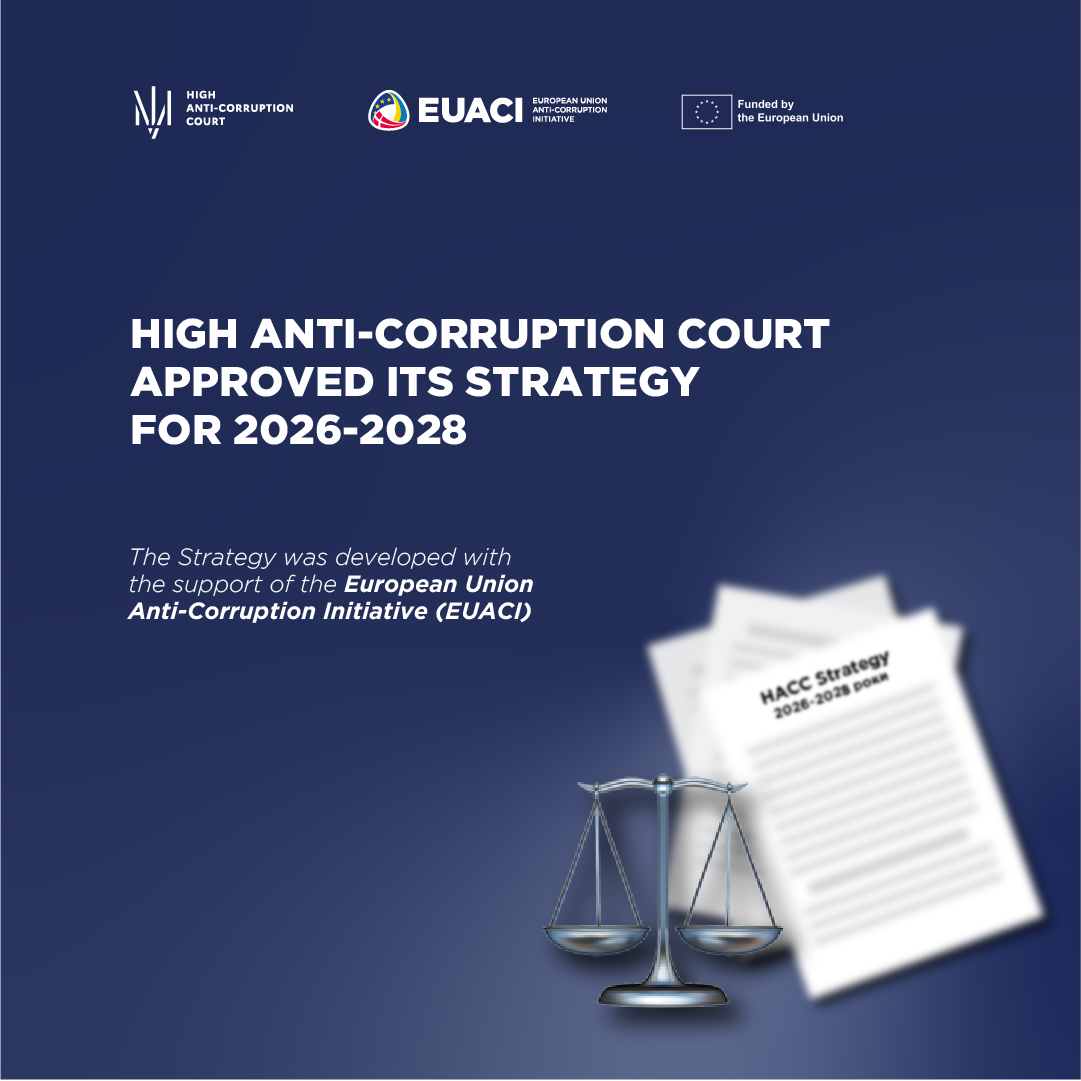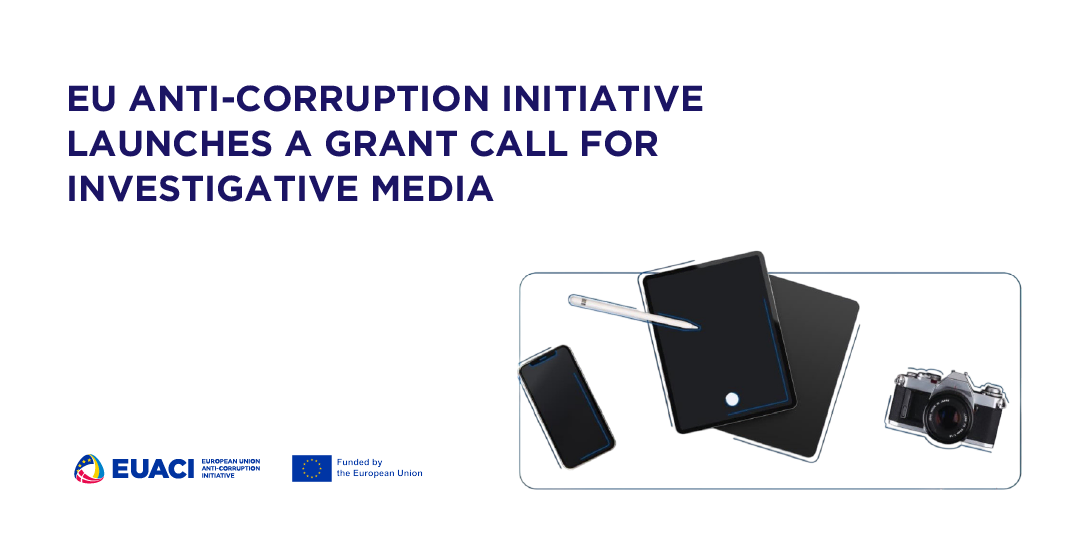Eka Tkeshelashvili, Head of the EU Anti-Corruption Initiative (EUACI), gave an exclusive interview to the Interfax-Ukraine news agency, in which she talked about key directions of the Programme’s activities and the results over the past 2.5 years. Head of EUACI shared her thoughts on the effectiveness, prospects and quality of collaboration between anti-corruption bodies, civil society and investigative media. She also shared the EUACI’s experience on the support of the establishment of the High Anti-Corruption Court.

Mrs. Tkeshelashvili described 3 Components of the Programme: support for the development of anti-corruption bodies, support for the parliamentary committee regarding the corruption risks assessment of draft Laws, and a three-track Component consisting of grant programs for Ukrainian CSOs , support for investigative journalism and the “Integrity Cities” project . While speaking about the Programme’s future initiatives, Mrs. Tkeshelashvili mentioned the e-case management system – the project of digital transformation in criminal proceedings at NABU and SAPO, planned for this year.
She also spoke on the development and prospects of investigative journalism in Ukraine. According to Mrs. Tkeshelashvili, high-quality journalism not only exposes corruption casesbutalso leads to a zero tolerance to the whole phenomenon of corruption in the public consciousness, as well as to the understanding of the urgency of the problem. The process of dealing with this issue is no less important than its successful outcome. Thus, one of EUACI’s key objectives is to provide comprehensive and sustainable support for such transformation within the society and create new opportunities for investigative journalism.
“For the second consecutive year, EU Anti-Corruption Initiative supports such events as the international festival of investigative journalism “Mezhyhirya Fest”. This year it focused on the topic “Journalism vs. Activism”,” said Mrs. Tkeshelashvili. “This year we also supported the mentoring programme for 50 investigative journalists from different regions of Ukraine. Hopefully, it will help them to develop effective practical skills for writing their investigative stories.”
The Head of EUACI suggested that one of the reasons of success of investigative journalism in Ukraine is the effective collaboration between media and anti-corruption agencies. Balanced transparency of such bodies allows journalists not only to inform agencies’ management about corruption cases, but also to discuss the peculiarities of their investigations. Such collaboration could improve the facts basis for the criminal investigations and potentially increase the speed of the process of investigation.
In conclusion, Mrs. Tkeshelashvili shared the experience of support in the formation of the judiciary of the High Anti-Corruption Court (HACC) and described the role of the EUACI in the establishment of this specialized anti-corruption body:
“We are very pleased how motivated the judges are and how much work they do on their own to organize and regulate internal procedures within the Court and to help its further progress. We are also pleased that, being the technical assistance programme of the European Union, we have been participating in the selection of highly qualified judges for the Court and continue to contribute to the establishment of the HACC as a new anti-corruption body.”
Read the full interview here


